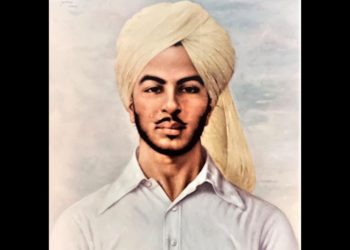Every limit of journalist ethics was crossed when a major news channel, followed by others of course, telecast threats to behead Deepika Padukone and Sanjay Leela Bhansali by little known men protesting against the movie Padmavati. The channel gave the protestors full play, and then tamely criticised them in the commentary. The channel that does not report on thousands of workers, or farmer protests gave full play to an unknown Meerut-based Thakur leader who offered Rs 5 crore to anyone who beheads Padmavati director Sanjay Leela Bhansali and actress Deepika Padukone. "Anyone who brings the head of Sanjay Leela Bhansali and Deepika Padukone will be rewarded with Rs 5 crore. Rani Ma Padmavati had sacrificed her life with 12,000 other women in mass immolation (Jauhar), and Bhansali has raised a question on her courage by showing her in bad light in his film. This is unacceptable. Either both of them should leave the country or get ready to be beheaded," said Thakur Abhishek Som, national president of Akhil Bharatiya Kshatriya Yuva Mahasabha on national television. Many others were seen on television news channels through prime time, issuing threats, and indulging in hate speech against the actor and director in abusive language.
In the process, the channels gave sufficient space to Karni Sena and others on dharna against the movie, to directly preach violence, and death for the actor and director who were also asked to leave India. A sword was brandished by the protestor to give more weight to the beheading threat, with the Karni Sena getting support from the BJP in poll going Rajasthan. Chief Minister Vasundhra Raje has kept silent as is her wont these days, but Uttar Pradesh CM Yogi Aditynath has joined the chorus demanding a ban on Padmavati.
The media’s role in covering the controversy over the film has been reprehensible to put it mildly. The as yet unwritten code of journalistic ethics does not allow publicity for such threats. What could have been noted, has been propagated in a manner by television news channels that can only encourage violence and give a sense of impunity to those indulging in hate speech. Basic ethics has always warned the media against predicting violence, lest it encourage a hate charged atmosphere to erupt, or giving space to fringe elements threatening murder and death. The same news was barely carried by the print or internet media, again establishing the preoccupation with the so called national news channels with sensationalism regardless of the consequences.
It is imperative for the media bodies to take note of this, censure those who crossed all journalistic lines of responsibility and accountability, and start working on a code of ethics that should then be made applicable on all those dealing with news. The media cannot be allowed to run riot, and give publicity to those who are challenging Indian democracy with hate and divisiveness. This kind of reportage feeds into creating communal and caste divisions in the country, that goes against the basic norms of journalistic ethics. The Editors Guild, The Press Council and The Broadcasting Association must take urgent note.





